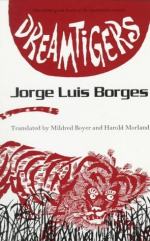|
This section contains 3,417 words (approx. 12 pages at 300 words per page) |

|
SOURCE: “An Endless Happiness,” in The Times Literary Supplement, No. 5055, February 18, 2000, pp. 12-3.
In the following essay, Manguel argues that Borges's significance as a writer derives from his delight in language and his faith in literature.
The visible work of Jorge Luis Borges may appear daunting (the citations, the obscure and illustrious names, so many of them apocryphal, the apparently abstruse subjects), but his legacy, I believe, is less in his erudite writing than in his companionable approach to literature. Borges was, as he often said, more of a reader than a writer, someone who not only told stories but transformed them through his perception. At a time when the electronic media insist on the value of speed over depth and instantaneous communication over past reflection, Borges reminds us that the craft of reading is a slow, quiet and endless happiness, a memorable occupation beyond practical reasons or...
|
This section contains 3,417 words (approx. 12 pages at 300 words per page) |

|


